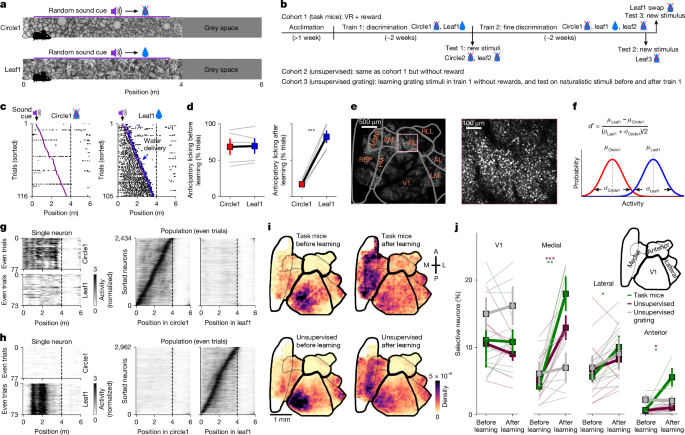
"Our findings indicate that even without task feedback, unsupervised learning can induce significant neural plasticity, reshaping sensory representations in the visual cortex."
"The prevalent neural changes in mice in response to visual stimuli suggest unsupervised learning mechanisms function similarly to supervised ones, challenging existing paradigms."
The article discusses how neurons in sensory areas adapt their responses during learning to refine task stimulus encoding. It explores unsupervised learning as a less conventional method of neural plasticity, contrasting it with supervised learning, which requires task feedback. Evidence shows that even without rewards, neural tuning changes can occur with repeated exposure. The study reveals that most neural plasticity observed in visual cortex task learning in mice also arises from unsupervised exposure to stimuli, except in a few anterior visual areas, suggesting broader implications for understanding neural adaptations during sensory experiences.
Read at Nature
Unable to calculate read time
Collection
[
|
...
]